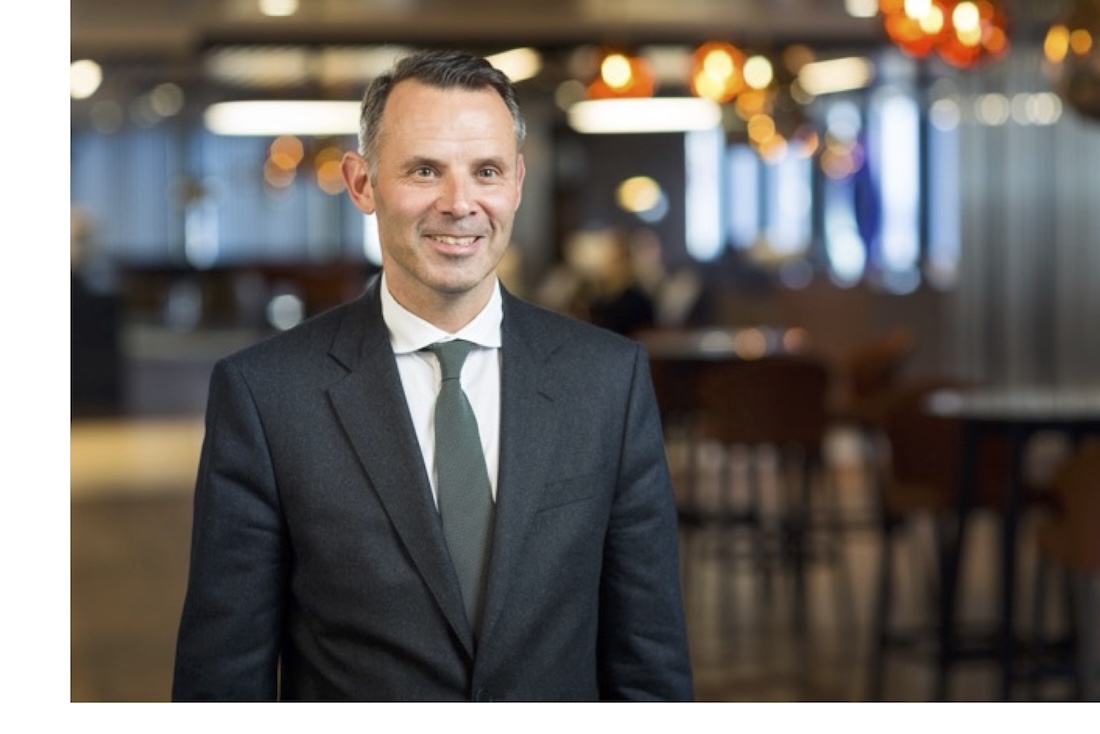
Climate change poses significant risk to pension funds: Ortec Finance
North American pension funds could see returns decimated by 50 per cent if worst case scenario climate change forecasts materialise by 2040, industry research reveals.

North American pension funds could see returns decimated by 50 per cent if worst case scenario climate change forecasts materialise by 2040, industry research reveals.

Aviva Investors has added a private debt offering to its suite of long-term asset funds (LTAF).

Assets of the top 100 asset owners globally have returned to growth in 2023 after a fall of 8.7 per cent in 2022, according to new research by the Thinking Ahead Institute.

bfinance, has released its biennial global asset owner survey, identifying the priorities of more than 300 senior investors, with a combined AuM of over USD7 trillion in assets across 39 countries.

The Church Investors Group (CIG), a coalition worth GBP26 billion, is calling on asset managers to take greater account of faith when formulating investment strategies, arguing they should not have to“make do with investment solutions which are not designed with Christian faith in mind”.

Majority of asset and wealth managers say AI will fuel revenue growth: PwC
PwC’s 2024 Asset & Wealth Management Report surveyed 264 asset managers
and 257 institutional investors from across 29 countries and territories, and also finds that four-fifths (81 per cent) are contemplating strategic partnerships, consolidations, or mergers and acquisitions in order to enhance technological capabilities and build an ‘extended tech ecosystem’ to innovate, expand into new markets, and democratise access to investment products ahead of a great wealth transfer.
The report also finds that global AUM held by AWM organisations around the world is projected by PwC to hit USD171 trillion by 2028, with tokenised products to surge at a CAGR of 50 per cent.
Albertha Charles, Global Asset & Wealth Management Leader, PwC UK, says: “Disruptive technologies such as AI are transforming the asset and wealth management industry and fuelling revenue growth, productivity and efficiency. Market players are subsequently looking to strategic consolidation and partnerships to build tech-driven ecosystems, break down silos in data management, and transform their service offerings ahead of a great wealth transfer that will see mass affluents and younger audiences play a greater role in shaping service demands. To emerge as leaders in this new digital-first market, AWM organisations must invest in their technological transformation while also ensuring they are re-skilling and upskilling their workforces with the necessary digital capabilities to remain competitive and innovative.”
Disruptive technologies will fuel AWM revenue growth
AWM organisations broadly see disruptive technologies such as AI as transformational, with more than three-fifths viewing it as the most transformative technology over the next two to three years. 80 per cent say such technologies will fuel revenue growth, with 84 per cent noting it will improve operational efficiency and 72 per cent noting it will improve employee productivity. The provision of tech-as-a-service by AMW organisations could deliver a 12 per cent boost to revenues by 2028, according to PwC analysis.
While such technologies represent an opportunity to turbo-charge operations and access new markets, more than three-fifths (68 per cent) say that they allocate less than one-sixth of their capital to innovative and potentially transformative technologies, with more than half (59 per cent) of institutional investors noting such technologies could reduce their reliance on asset managers. This comes as only 20 per cent of AWM organisations are currently using disruptive tech to enhance personalised
investment advisory.
Global AUM to hit US$171 trillion by 2028, with alternatives leading the way
Under baseline projections, PwC research estimates global assets under management (AUM) held by asset and wealth managers (AWMs) is expected to hit USD171 trillion by 2028, reflecting a 5.9 per cent CAGR, and up from 5 per cent last year. Alternatives are projected to grow much faster – at a CAGR of 6.7 per cent, to reach USD27.6 trillion by 2028.
As AWM organisations look to new growth opportunities, tokenisation stands out, with tokenised products expected by PwC to increase from USD40 billion to over USD317 billion in 2028, representing a 50 per cent CAGR. Tokenisation, or fractional ownership, could expand market offerings by democratising finance and lowering premiums, with tokenisation planned to be offered notably by asset managers in private equity (53 per cent), equity (46 per cent), and hedge funds (44 per cent).
While alternatives represent a significant growth opportunity, less than one-fifth (18 per cent) currently offer emerging asset classes such as digital assets as part of their offering – even as eight in 10 that do offer such assets report a rise in inflows.
AWM looks to consolidation and tech ecosystems as talent remains top priority
Against this backdrop, 30 per cent of asset managers say they are currently facing a lack of relevant skills and talent, while 73 per cent of AWM organisations who are exploring M&A see access to skilled expertise as the number one driver for deal-making over the next two to three years.
As AWM organisations contend with digital disruption and expanding their talent and product pools, more than four-fifths (81 per cent) are contemplating strategic partnerships, consolidations, or mergers and acquisitions to build an extended tech ecosystem to drive growth.
Albertha Charles, Global Asset & Wealth Management Leader, PwC UK, concludes:
“The report highlights an urgent need for AWM organisations to rethink investment strategies. Long-term viability depends on a radical, fundamental and continuous reinvention of how organisations create and deliver value. Strategic partnerships and consolidation will play a vital role in building tech ecosystems that will facilitate a greater transfer of ideas and expertise. Smaller players will be able to bring their systems up to speed quickly and cost-effectively, while allowing larger players to access talent and insight pivotal to growth, particularly as new and emerging technologies such as AI transform the investment management landscape.”

Asset owners should abandon traditional approaches to evaluating investment manager performance in favour of a scorecard approach that encompasses net zero targets, the CFA Institute has said.

The majority of asset owners do not consider diversity, equity and inclusion (DEI) when selecting investment managers despite claiming that gender and ethnic heterogeneity is instrumental in decision making, research finds.

A global coalition of investors representing approximately USD2.5 trillion in assets under management is urging governments to “take ambitious policy and regulatory action to halt and reverse global biodiversity loss”.

The UK’s transition to net zero needs an estimated GBP50 billion every year between 2030 and 2050, according to the Climate Change Committee; amounts that mean the economy to transform on an unprecedented scale.
© 2022 Institutional Asset Manager